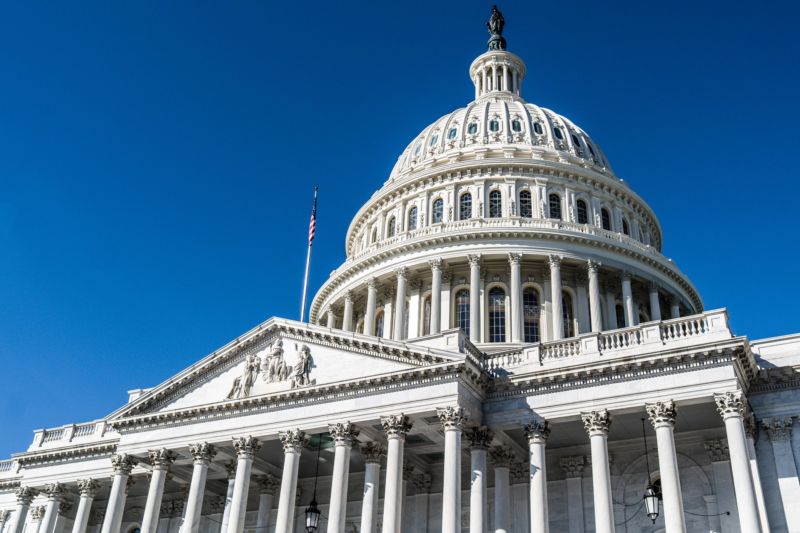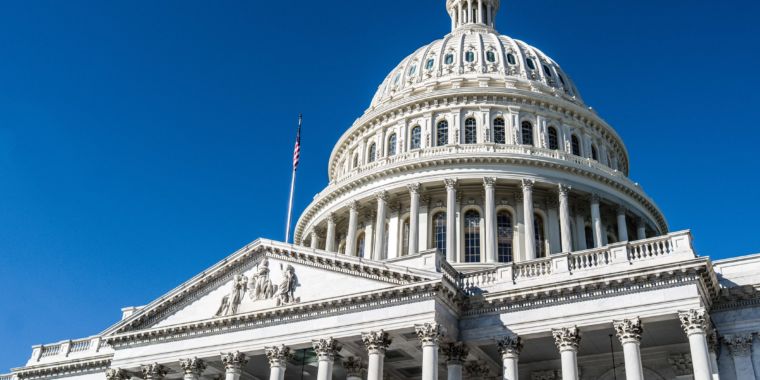
A bipartisan group of lawmakers in the House of Representatives introduced a bill that would force social media platforms to allow people to use the site without algorithms that filter or prioritize the content that users see. The bill joins a similar act proposed in the Senate, and together, the bills suggest that lawmaker animus toward social media companies isn’t going away.
“Consumers should have the option to engage with Internet platforms without being manipulated by secret algorithms driven by user-specific data,” Rep. Ken Buck (R-Colo.) said in a statement to Ars. Buck introduced the bill with three cosponsors, Reps. David Cicilline (D-R.I.), Lori Trahan (D-Mass.), and Burgess Owens (R-Utah).
“Facebook and other dominant platforms manipulate their users through opaque algorithms that prioritize growth and profit over everything else,” Rep. Cicilline said in a statement. “And due to these platforms’ monopoly power and dominance, users are stuck with few alternatives to this exploitative business model, whether it is in their social media feed, on paid advertisements, or in their search results.”
As the deluge of content grows, companies have increasingly relied on ranking and filtering algorithms to manage the flow so that users don’t drown in an unending stream of memes, hate speech, and inane babble while scrolling for photos of their friends’ kids, for example.
But those same algorithms have also come under fire as social media companies make content-related decisions that make them look less like neutral platforms and more like publishers.
Blast from the past
On its face, the proposed bill sounds appealing, trading on a certain nostalgia for a simpler time. Who wouldn’t want to experience the Internet before Facebook imposed algorithms on its News Feed or Google started personalizing search results?
For Google, the outcome might be a welcome one for users and possibly an improvement, forcing the company away from results that reinforce filter bubbles. But for social media networks like Facebook and Twitter, where people have amassed hundreds of “friends” and followers who collectively post thousands of pieces of content daily, the results would make the sites almost unusable. Maybe that’s the idea?
Or maybe the bill would force users to trim their friends lists to include only the people they find most important. That could make people retreat to friends and family, but it could also drive them further down whatever rabbit hole they were already in.
The bill would require social media sites to post a notice the first time a person interacts with an “opaque” algorithm. The notice would give users the option to turn the algorithm off. The bill defines an opaque algorithm as one that “determines the order of manner that information is furnished to a user… based, in whole or in part, on user-specific data that was not expressly provided by the user to the platform for such purpose.” Social media companies would also be required to offer a setting so users could toggle the use of such algorithms. Social media companies would no doubt wrap words around those settings that would discourage people from using them, but for savvy users, the bill could open a new way of using social media.
A step
It’s easy to see this bill as a misguided attempt to tame Big Tech and its content-ranking algorithms. But that would also ignore the purpose that small steps like this can serve in the legislative process.
In his statement, Cicilline called the bill “an important step.” The bill would certainly make some users happy, and in the meantime, it would continue to build trust among lawmakers from different parties. Buck and Cicilline helped shepherd a string of antitrust bills out of the House Judiciary committee this summer. Each bill on its own wasn’t a major threat to Big Tech companies, just as this one is unlikely to bring Facebook to heel. Yet each successive bill lays the groundwork for the next.
There may or may not be some grand plan afoot, but history can be hard to make sense of when you’re living through it. Together, these bills may not amount to much. But they could also be the beginning of something that reforms tech regulation for generations to come.








